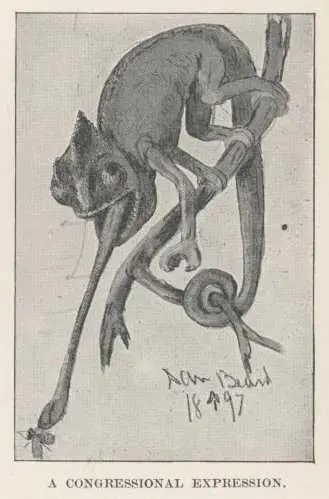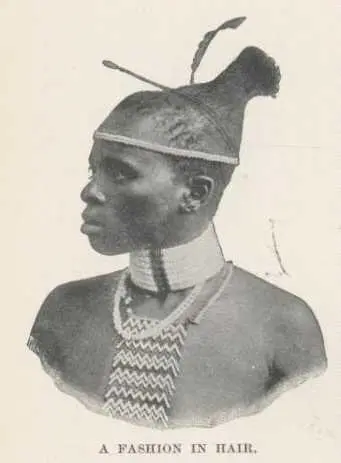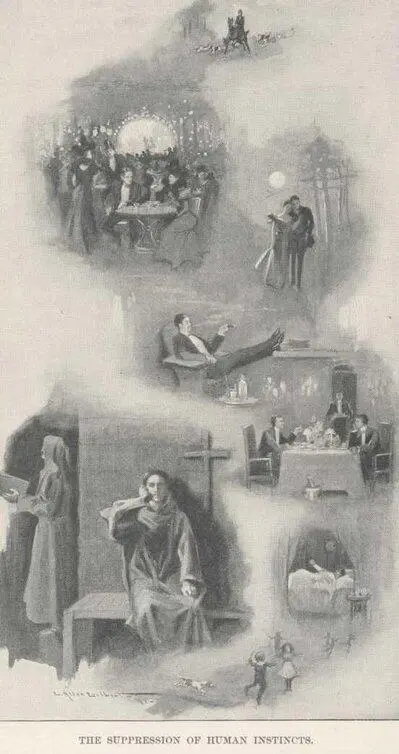Mark Twain - Following the Equator
Здесь есть возможность читать онлайн «Mark Twain - Following the Equator» весь текст электронной книги совершенно бесплатно (целиком полную версию без сокращений). В некоторых случаях можно слушать аудио, скачать через торрент в формате fb2 и присутствует краткое содержание. Год выпуска: 2004, Жанр: Классическая проза, Юмористическая проза, на английском языке. Описание произведения, (предисловие) а так же отзывы посетителей доступны на портале библиотеки ЛибКат.
- Название:Following the Equator
- Автор:
- Жанр:
- Год:2004
- ISBN:нет данных
- Рейтинг книги:3 / 5. Голосов: 1
-
Избранное:Добавить в избранное
- Отзывы:
-
Ваша оценка:
- 60
- 1
- 2
- 3
- 4
- 5
Following the Equator: краткое содержание, описание и аннотация
Предлагаем к чтению аннотацию, описание, краткое содержание или предисловие (зависит от того, что написал сам автор книги «Following the Equator»). Если вы не нашли необходимую информацию о книге — напишите в комментариях, мы постараемся отыскать её.
Following the Equator — читать онлайн бесплатно полную книгу (весь текст) целиком
Ниже представлен текст книги, разбитый по страницам. Система сохранения места последней прочитанной страницы, позволяет с удобством читать онлайн бесплатно книгу «Following the Equator», без необходимости каждый раз заново искать на чём Вы остановились. Поставьте закладку, и сможете в любой момент перейти на страницу, на которой закончили чтение.
Интервал:
Закладка:
The chameleon in the hotel court. He is fat and indolent and contemplative; but is business-like and capable when a fly comes about—reaches out a tongue like a teaspoon and takes him in. He gums his tongue first. He is always pious, in his looks. And pious and thankful both, when Providence or one of us sends him a fly. He has a froggy head, and a back like a new grave—for shape; and hands like a bird's toes that have been frostbitten. But his eyes are his exhibition feature. A couple of skinny cones project from the sides of his head, with a wee shiny bead of an eye set in the apex of each; and these cones turn bodily like pivot-guns and point every-which-way, and they are independent of each other; each has its own exclusive machinery. When I am behind him and C. in front of him, he whirls one eye rearwards and the other forwards—which gives him a most Congressional expression (one eye on the constituency and one on the swag); and then if something happens above and below him he shoots out one eye upward like a telescope and the other downward—and this changes his expression, but does not improve it.

Natives must not be out after the curfew bell without a pass. In Natal there are ten blacks to one white.
Sturdy plump creatures are the women. They comb their wool up to a peak and keep it in position by stiffening it with brown-red clay—half of this tower colored, denotes engagement; the whole of it colored denotes marriage.

None but heathen Zulus on the police; Christian ones not allowed.
May 9. A drive yesterday with friends over the Berea. Very fine roads and lofty, overlooking the whole town, the harbor, and the sea-beautiful views. Residences all along, set in the midst of green lawns with shrubs and generally one or two intensely red outbursts of poinsettia—the flaming splotch of blinding red a stunning contrast with the world of surrounding green. The cactus tree—candelabrum-like; and one twisted like gray writhing serpents. The "flat-crown" (should be flat-roof)—half a dozen naked branches full of elbows, slant upward like artificial supports, and fling a roof of delicate foliage out in a horizontal platform as flat as a floor; and you look up through this thin floor as through a green cobweb or veil. The branches are japanesich. All about you is a bewildering variety of unfamiliar and beautiful trees; one sort wonderfully dense foliage and very dark green—so dark that you notice it at once, notwithstanding there are so many orange trees. The "flamboyant"—not in flower, now, but when in flower lives up to its name, we are told. Another tree with a lovely upright tassel scattered among its rich greenery, red and glowing as a firecoal. Here and there a gum-tree; half a dozen lofty Norfolk Island pines lifting their fronded arms skyward. Groups of tall bamboo.
Saw one bird. Not many birds here, and they have no music—and the flowers not much smell, they grow so fast.
Everything neat and trim and clean like the town. The loveliest trees and the greatest variety I have ever seen anywhere, except approaching Darjeeling. Have not heard anyone call Natal the garden of South Africa, but that is what it probably is.
It was when Bishop of Natal that Colenso raised such a storm in the religious world. The concerns of religion are a vital matter here yet. A vigilant eye is kept upon Sunday. Museums and other dangerous resorts are not allowed to be open. You may sail on the Bay, but it is wicked to play cricket. For a while a Sunday concert was tolerated, upon condition that it must be admission free and the money taken by collection. But the collection was alarmingly large and that stopped the matter. They are particular about babies. A clergyman would not bury a child according to the sacred rites because it had not been baptized. The Hindoo is more liberal. He burns no child under three, holding that it does not need purifying.
The King of the Zulus, a fine fellow of 30, was banished six years ago for a term of seven years. He is occupying Napoleon's old stand—St. Helena. The people are a little nervous about having him come back, and they may well be, for Zulu kings have been terrible people sometimes—like Tchaka, Dingaan, and Cetewayo.
There is a large Trappist monastery two hours from Durban, over the country roads, and in company with Mr. Milligan and Mr. Hunter, general manager of the Natal government railways, who knew the heads of it, we went out to see it.
There it all was, just as one reads about it in books and cannot believe that it is so—I mean the rough, hard work, the impossible hours, the scanty food, the coarse raiment, the Maryborough beds, the tabu of human speech, of social intercourse, of relaxation, of amusement, of entertainment, of the presence of woman in the men's establishment. There it all was. It was not a dream, it was not a lie. And yet with the fact before one's face it was still incredible. It is such a sweeping suppression of human instincts, such an extinction of the man as an individual.

La Trappe must have known the human race well. The scheme which he invented hunts out everything that a man wants and values—and withholds it from him. Apparently there is no detail that can help make life worth living that has not been carefully ascertained and placed out of the Trappist's reach. La Trappe must have known that there were men who would enjoy this kind of misery, but how did he find it out?
If he had consulted you or me he would have been told that his scheme lacked too many attractions; that it was impossible; that it could never be floated. But there in the monastery was proof that he knew the human race better than it knew itself. He set his foot upon every desire that a man has—yet he floated his project, and it has prospered for two hundred years, and will go on prospering forever, no doubt.
Man likes personal distinction—there in the monastery it is obliterated. He likes delicious food—there he gets beans and bread and tea, and not enough of it. He likes to lie softly—there he lies on a sand mattress, and has a pillow and a blanket, but no sheet. When he is dining, in a great company of friends, he likes to laugh and chat—there a monk reads a holy book aloud during meals, and nobody speaks or laughs. When a man has a hundred friends about him, evenings, he likes to have a good time and run late—there he and the rest go silently to bed at 8; and in the dark, too; there is but a loose brown robe to discard, there are no night-clothes to put on, a light is not needed. Man likes to lie abed late—there he gets up once or twice in the night to perform some religious office, and gets up finally for the day at two in the morning. Man likes light work or none at all—there he labors all day in the field, or in the blacksmith shop or the other shops devoted to the mechanical trades, such as shoemaking, saddlery, carpentry, and so on. Man likes the society of girls and women—there he never has it. He likes to have his children about him, and pet them and play with them—there he has none. He likes billiards—there is no table there. He likes outdoor sports and indoor dramatic and musical and social entertainments—there are none there. He likes to bet on things—I was told that betting is forbidden there. When a man's temper is up he likes to pour it out upon somebody there this is not allowed. A man likes animals—pets; there are none there. He likes to smoke—there he cannot do it. He likes to read the news—no papers or magazines come there. A man likes to know how his parents and brothers and sisters are getting along when he is away, and if they miss him—there he cannot know. A man likes a pretty house, and pretty furniture, and pretty things, and pretty colors—there he has nothing but naked aridity and sombre colors. A man likes—name it yourself: whatever it is, it is absent from that place.
Читать дальшеИнтервал:
Закладка:
Похожие книги на «Following the Equator»
Представляем Вашему вниманию похожие книги на «Following the Equator» списком для выбора. Мы отобрали схожую по названию и смыслу литературу в надежде предоставить читателям больше вариантов отыскать новые, интересные, ещё непрочитанные произведения.
Обсуждение, отзывы о книге «Following the Equator» и просто собственные мнения читателей. Оставьте ваши комментарии, напишите, что Вы думаете о произведении, его смысле или главных героях. Укажите что конкретно понравилось, а что нет, и почему Вы так считаете.











